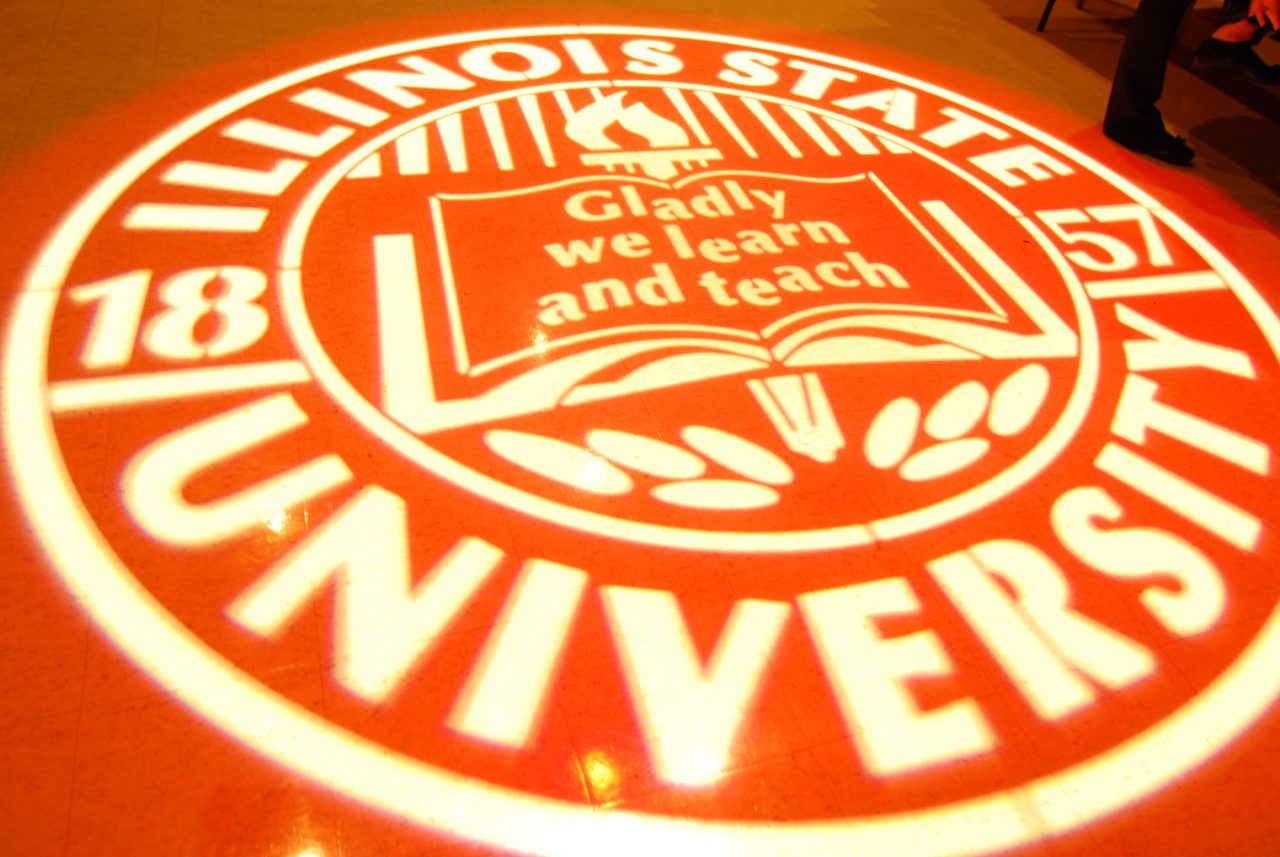Concurrent with the College of Fine Arts’ 40th anniversary this year is the 40th anniversary of the School of Theatre, which until 1970, had been the drama program within the English department. Also marking an anniversary in the college this year is the School of Theatre’s Crossroads Theatre, renamed The Crossroads Project to show the increased depth of offerings over the past 10 years.
In 2000, Crossroads Theatre was created by theatre faculty member Leslie Sloan Orr to raise the profile of black theatre at Illinois State University and the surrounding communities. When she arrived, Orr gathered support from upper administration, the College of Fine Arts and the School of Theatre to host an open house and reception with about 200 community members in attendance. Orr recalls that “an Illinois Power Company administrator was so pleased with the Crossroads Theatre concept that his company became our first sponsor of the program, giving us $21,000 over three years.”
“Crossroads’ mission is to introduce diverse cultures through our productions, thus enhancing our curriculum,” Janet Wilson, director of the School of Theatre, said. “It’s exciting to have the opportunity to promote plays that are rarely produced in Central Illinois.” One production in each of the last 10 theatre seasons has been a play written by a minority playwright, depicting the experiences of ethnic minorities in the U.S. or other world cultures (for a list of the plays, click on Crossroads).
To encourage off-campus community interest and participation in Crossroads productions, auditions are held for anyone in the community to earn a role in a play. “We have had business people from State Farm, pastors from local churches and students from the Bloomington-Normal school systems eager to accept roles in these productions,” Wilson said.
“At first, since the largest minority population at Illinois State is African American, we sought to produce African American playwrights,” Orr said. The first Crossroads production was for colored girls who have considered suicide when the rainbow is enuf by Ntozake Shange. In 2004, Crossroads invited Regina Taylor, playwright of the musical Crowns, to campus when Orr directed the musical. Another African American scholar/artist, Kathy Perkins, served as the lighting designer for Crowns.
“In 2003, with the growing campus minority population of Latino/Hispanic-Americans, Asian Americans and Native Americans, we decided to expand our repertoire to produce works of all minority groups,” Orr said. Crossroads presented Roosters by Milcha Sanchez-Scott, a drama about a Mexican-American family living in the southwest, directed by Janet Wilson.
This year, Crossroads will present its first Indian play, Bhopal, by Canadian playwright Rahul Varma. The play is about the 1984 Union Carbide gas plant leak that killed thousands and destroyed the lives of more than 500,000 people. Theatre alum Mark Baer is directing the play. The Crossroads Project will be hosting a variety of interdisciplinary events connected with Varma’s Guest Artist Residency and the production of Bhopal.
While faculty members have directed most of the Crossroads productions, internationally renowned Zen arts master and theatre director Shozo Sato, directed his final academic production, Othello’s Passion, in 2006. He also served as an artist-in-residence for six weeks, teaching acting techniques and interacting with the campus community. One year later, Kathryn Erwin, a 1980 MFA alumna, returned to campus to direct Ma Rainey’s Black Bottom by the late, legendary August Wilson.
The existence of The Crossroads Project has helped to inspire the introduction of a variety of academic theatre courses that address and incorporate cultural diversity. Now, with a decade under its belt, The Crossroads Project continues to evolve with an enhanced mission statement and its new name. According to current Crossroads Chairperson Ann Haugo, the program will alternate each year between a theatre production and educational programming, for instance a visiting artist or lecturer or a symposium that addresses Crossroads’ objectives (click on Crossroads Committee).
“Through Crossroads, the School of Theatre is addressing a broad range of cultural diversity issues,” said Haugo, an associate professor of theatre. “This is one of the primary ways the School of Theatre seeks to contribute to campus dialogues on diversity. As our mission statement says ‘Crossroads strives to develop multicultural audiences and artists who embrace a global vision and, together, build bridges of better understanding among people of all backgrounds.”

